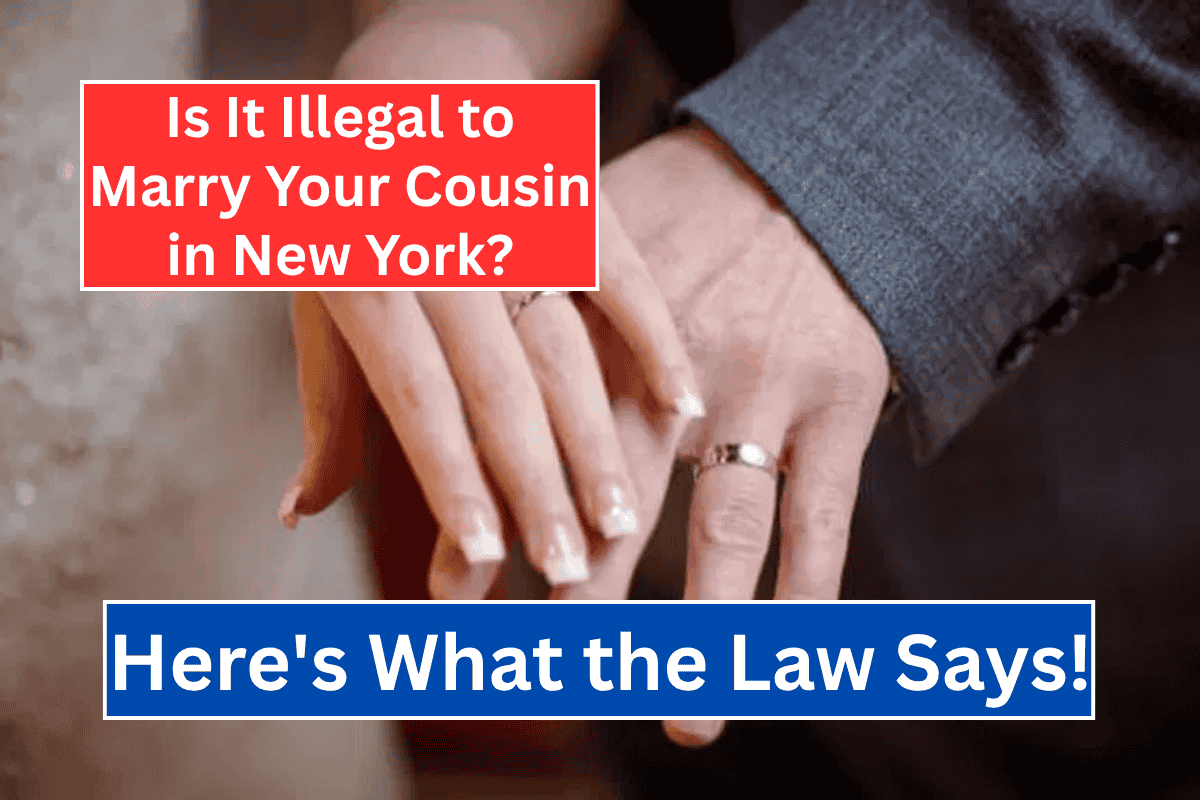While it may sound like something out of a soap opera or a joke, the question of whether cousins can legally marry in New York is actually a valid one. Sometimes, family relationships can be complicated, and in rare instances, two people may fall in love without realizing they are related.
If you’ve ever wondered about the legality of cousin marriages in New York, this article will clear up the confusion and give you all the important details.
Can First Cousins Get Married in New York?
Yes, first cousins can legally marry in New York. The state law permits marriages between first cousins, so if two people are cousins who share common grandparents, they can marry without any legal issues.
However, while New York allows first cousin marriages, there is a catch: some other states that prohibit cousin marriages may not recognize your marriage as legal if you plan to move there or if you’re applying for certain legal benefits.
This issue usually arises when individuals from different states (with different marriage laws) get married and then face challenges when moving to a state where cousin marriages are not allowed. While New York recognizes cousin marriages, not all states do, which can sometimes complicate the legal standing of such a marriage.
Who Can’t Get Married in New York?
New York has clear rules about who is not allowed to marry, primarily focusing on close family relationships. Under New York’s marriage laws, you cannot marry:
- An ancestor or descendant (like a mother and son or father and daughter).
- A brother and sister, whether they are full siblings or half-siblings.
- An uncle and his niece or an aunt and her nephew.
These restrictions are designed to prevent marriages between people who share a very close genetic relationship. New York law emphasizes protecting families from the risks associated with such unions, particularly genetic concerns.
Who Can Get Married in New York?
New York allows several types of cousin relationships to marry legally. These include:
- First cousins: People who share common grandparents.
- Half-first cousins: People who are cousins through one half-sibling of their parents.
- First cousins once removed: Children of first cousins.
- Second cousins, third cousins, and beyond: These more distant cousins can also legally marry in New York.
As long as the couple doesn’t fall into one of the prohibited categories, such as siblings or parent-child relationships, their marriage will be recognized by the state.
What’s the Downside to Marrying Your Cousin?
While New York allows cousin marriages, it’s important to remember that other states may not. If a couple marries in New York and then moves to a state that prohibits cousin marriages, their union may not be legally recognized there. Additionally, some federal benefits, such as immigration benefits, may be affected by state laws.
It’s also worth noting that marrying a cousin, particularly a first cousin, can raise concerns about genetic risks for offspring. While the genetic risks of marrying a cousin are relatively low, they do exist, and it’s something that couples may want to consider.
In New York, it is absolutely legal for first cousins, and even more distant cousins, to marry each other. The state does not impose restrictions on cousin marriages, and it recognizes relationships between first cousins, half-cousins, and second cousins and beyond.
However, couples should be aware that while their marriage is legal in New York, it may not be recognized in all states, particularly those that ban cousin marriages. Understanding the broader implications of cousin marriages in other states and in the context of federal benefits is crucial.
If you’re thinking about marrying a cousin, it’s always a good idea to consult with a legal expert to ensure that your marriage is recognized in other states and that you understand any potential legal consequences.












